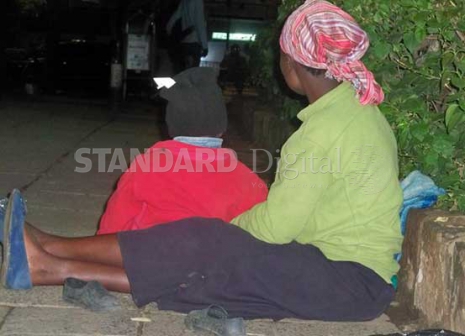×
The Standard e-Paper
Home To Bold Columnists

As a crippled woman drags herself through Kenyatta Avenue in Nakuru town, she is accompanied by her own children who carry her begging bowl.
On her laps is her three-year-old last-born daughter who is slowly licking her lollipop.